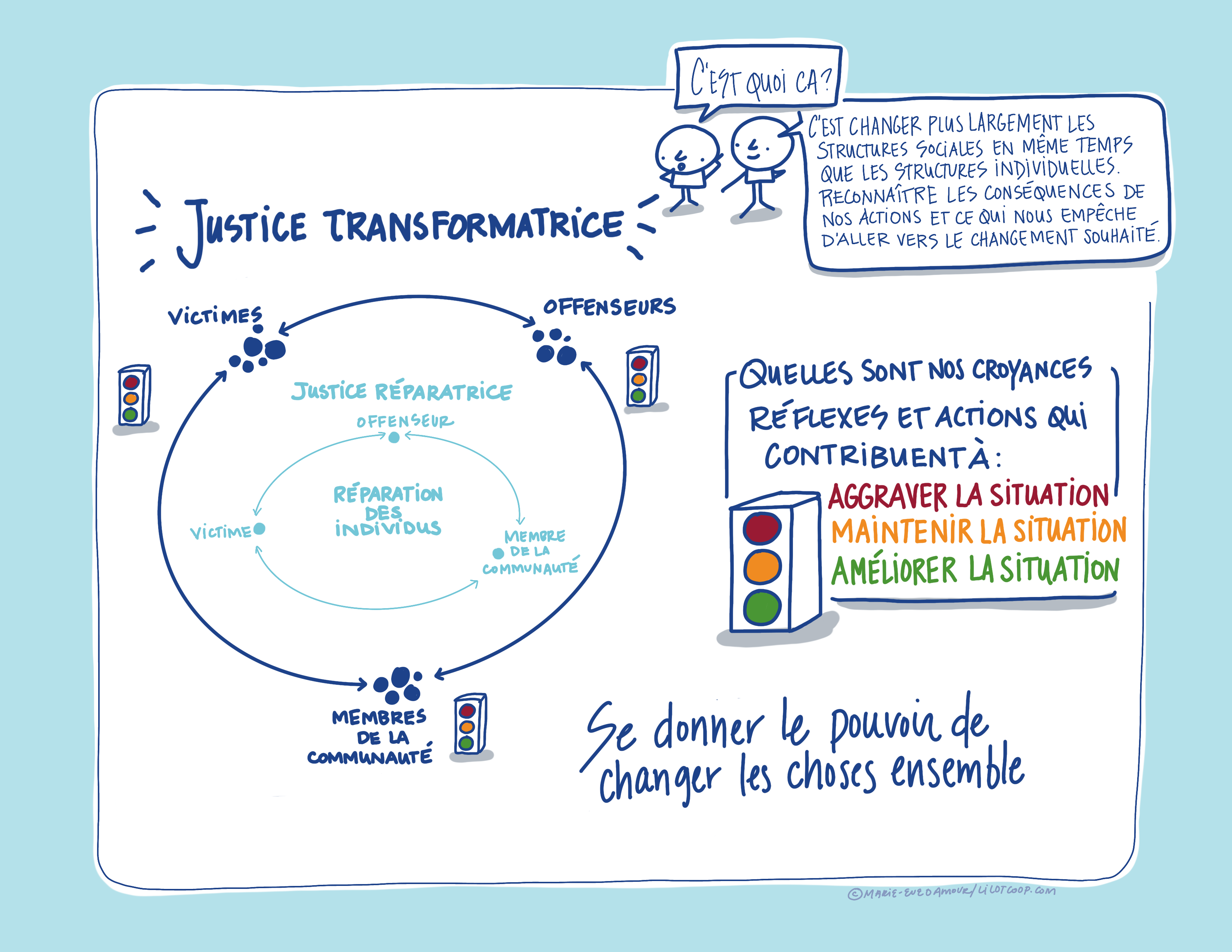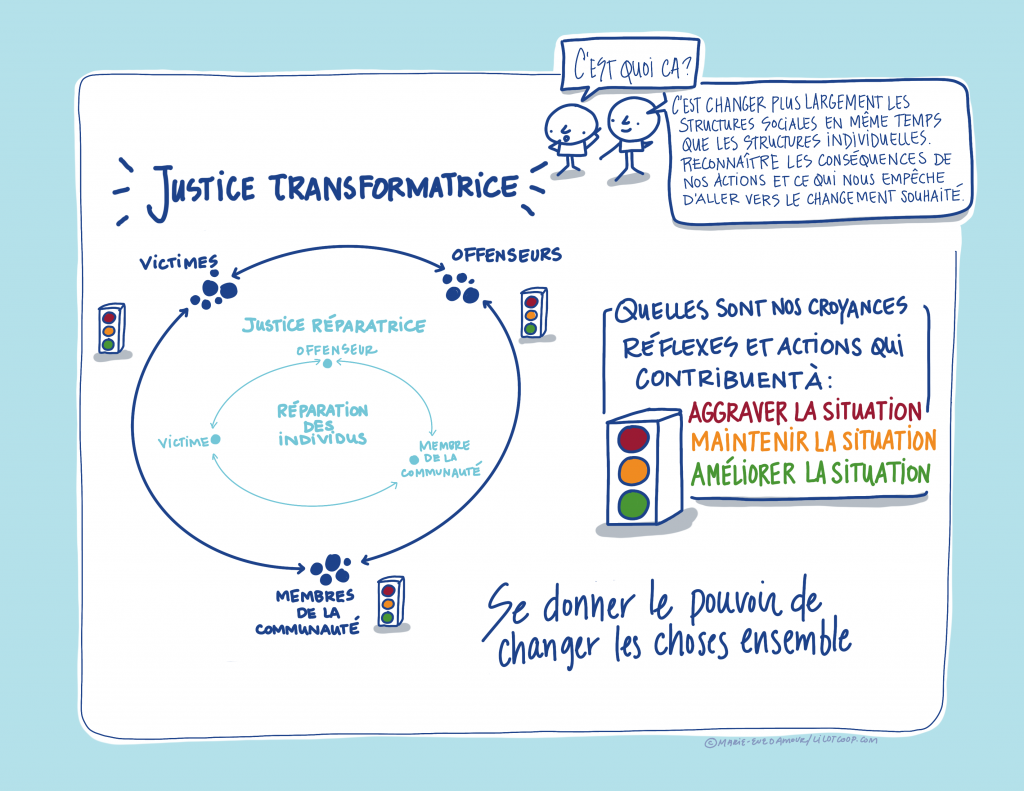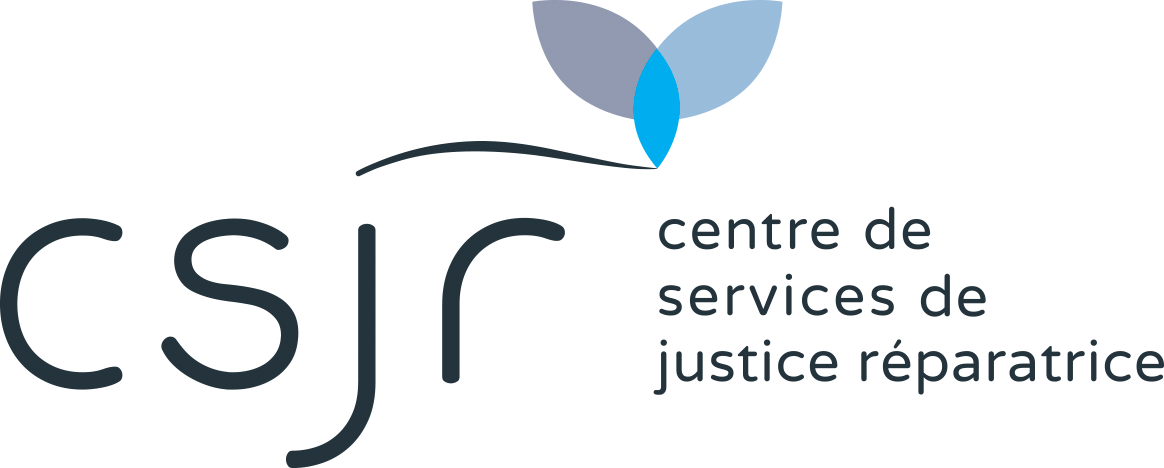
For several years now, the CSJR has been exploring different ways to address the complexity of collective trauma: a coffee chat #metoo in 2017, a meeting on indoctrination and racism in 2018, and talking circles for the expropriated people of Mirabel in 2020.
This year, funded by Fonds d’aide aux victimes d’actes criminels (FAVAC), the CSJR is developing two pilot projects to implement a restorative justice approach adapted to the specificity of collective trauma:
- (1) on hate crimes and hate incidents;
- (2) relating to sexual violence
These pilot projects will be built according to an inductive, creative and participative methodology. Moreover, we invite participants to share their views in a spirit of co-construction according to the needs that emerged during our meetings.
What do we mean by collective trauma?
Collective trauma is different from individual trauma because it is directly linked to social, political or historical structures. In order to be able to work in a restorative justice context, we consider collective trauma as the consequence of an act carried out by one or more people or institutions that directly or indirectly affects a group (e.g. expropriated people of Mirabel), or for what it represents as an identity marker (e.g. the attack on the Mosque of Quebec), chronically (e.g. feminicides) or intergenerationally (e.g. colonialism-racism).
We therefore exclude accidental events, natural climatic, geological or epidemic causes in these pilot projects.
Restorative justice or transformative justice?
See the video explaining restorative justice according to the CSJR (in French)
In these pilot projects, we wish to support a process of transformation of communities affected by violence by engaging the participants in a space of dialogue. We will address violence without violence, beyond polarization, stigmatization or punishment, without downplaying and minimizing its scope or consequences. We hope to develop the necessary capacities as a society to fight and act concretely, to build and (re)invent, together.
The process invites the participants into an exploratory and engaging space. It is different from a support or therapy approach. The participants put their experience at the service of the collective and transform their individual suffering into civic engagement. A process by individuals, for a new collective future. It is different from a traditional restorative justice approach.
Our vision in pictures (under construction)

For all questions related to group trauma projects, please contact Cloé at cloedaguet@csjr.org.
Last news about the project:
- https://csjr.org/des-nouvelles-du-projet-sur-le-trauma-collectif/
- https://csjr.org/les-violences-sexuelles-comme-trauma-collectif-recherche-de-participant-e-s-aux-projet-pilote/


